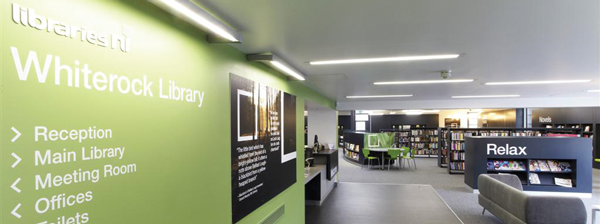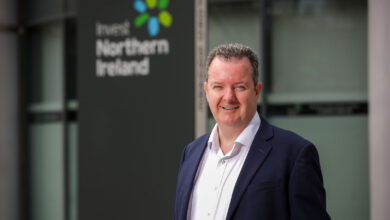Libraries in Belfast are resisting national falls in membership, due to the completion of a modernisation programme, funded by the Department of Culture, Arts and Leisure (DCAL) and carried out by the AmeyFMP consortium.
AmeyFMP, a consortium led by Amey involving three contractors (Farrans, H&J Martin and the Patton Group), was chosen by the Belfast Education and Library Board (BELB) as its strategic partner in delivering a new educational vision for the 21st Century.
Using additional funding from DCAL, Amey is helping Libraries NI to achieve its vision to regenerate and reinvigorate community library services in Belfast. The project has seen three libraries receive a modern refresh and has created benefits for Libraries NI including an increase in the number of library members.
The first phase involved the refurbishment of Whiterock Library, Shankill Road Library and Falls Road Library delivered under the Belfast Schools Strategic Partnership. Sarah Marshall, Project Manager for AmeyFMP, said: “Amey project-managed the refurbishment projects which were successfully delivered by AmeyFMP within tight budget and time constraints.”
The aim of the project is to provide a modern and sustainable library service to the local community, for all age groups. This has been achieved with the new library interior and layout, which is bespoke to each library site, providing zones for different services which each have an individual look and feel through the use of colour, furniture and graphics.
Since the projects were completed in April and May 2011, Libraries NI has seen an increase in the number of registered library members. From 2010-2011 to 2011-2012 there has been an increase of 3.5 per cent at Shankill Road Library, 3 per cent at Falls Road Library and 0.5 per cent at Whiterock Library.
In addition, there has been a significant increase in the number of community and charity events held at the libraries including a Macmillan coffee morning and a Halloween party for local children as well as an increase in active borrowers at Whiterock (by 43 per cent) and Shankill (by 12 per cent).
The libraries were selected for this project after Libraries NI conducted a strategic review of library provision in the Greater Belfast area. As a result of this review, a planned programme of closures and developments were proposed. Falls Road Library, Shankill Road Library and Whiterock Library were assessed as fit for purpose, sustainable into the future, in the right location and capable of delivering on the vision for Libraries NI. It was further agreed that these libraries be included in the first phase of major refurbishments planned within the greater Belfast area.
Sarah added: “We’re proud to have helped complete this pioneering scheme on behalf of Libraries NI.
“Through this and the completion of five new schools in north and east Belfast, not only offering pupils state-of-the-art facilities, but the local community too through a social enterprise model, we are helping to create a legacy of first class community buildings for local people.”
 For more information on:
For more information on:
Amey visit: www.amey.co.uk
Libraries NI visit: www.ni-libraries.net
DCAL visit: www.dcalni.gov.uk






